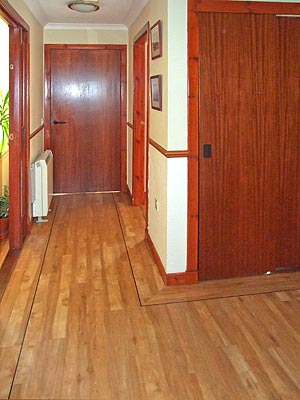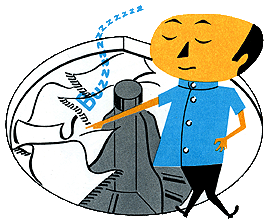|
Thread Number: 21205
Curiosity about other countries |
[Down to Last] |

|
| Post# 334793 , Reply# 2 3/10/2009 at 21:44 (5,523 days old) by toggleswitch2 () | ||
|
oopsie you are not Thomas. Sorry | ||
| Post# 334803 , Reply# 4 3/10/2009 at 23:11 (5,523 days old) by brasilianguy () | ||
|
Ah, i forget, my name is Vinicius, but u all can call me Vinny!!! | ||
| Post# 334882 , Reply# 9 3/11/2009 at 10:44 (5,523 days old) by iheartmaytag (Wichita, Kansas) | ||
Here in the Sunflower state
We sit on some of the largest natural gas fields in the world, so we pipe it in from Oklahoma (go figure) well at least they get to increase the rates for transmission. My gas bill this winter has been very reasonable as we had a mild winter this year. I averaged about $65-$90 from Nov. to Feb. The winter of 07-08 I saw a few $300 bills. There is a minimum of $39 just to have the service turned on in your home. During the summer months, my actual usage is just for the Hot water tank and very small about $6. Electricity is a monopoly ran by some evil, evil, greedy people called Westar Energy. We have one Nuclear plant that when put online 10 years late and $3billion over budget raised our electricity rates to some of the highest in the nation. The rest of the state's electricity is generated by Natural gas, Coal or Wind. They too are surcharged so our beloved Westar can recoop the cost of the Wolfcreek Nuclear Plant. With the current increase that was granted them by the Kansas Corp. Comm. 14% we are paying 22 cents per KW. With an electric stove, dishwasher, washer, dryer, celing fans, security lighting and cooling an 1874 sq.ft home my monthly bill runs about $125-$250 summer, and $55-$75 winter. Electric also has a convenience fee for having this wonderful survice to you home. It cost $15 per month to help them maintain their transmission lines. | ||
Post# 334887 , Reply# 12 3/11/2009 at 11:43 (5,523 days old) by thomasortega  (El Pueblo de Nuestra Señora de Los Angeles de Porciúncula) (El Pueblo de Nuestra Señora de Los Angeles de Porciúncula) |
||
|
Argentina John got amazed when we went to a liquor store in Argentina. Vodka Absolut: 13 dollars Limoncello: $2 Bottle of wine (fancy, delicious and very expensive brand) $4 Moet et Chandon $8 So... Argentina is the best country to get drunk. LOL | ||
| Post# 334985 , Reply# 14 3/11/2009 at 21:17 (5,522 days old) by brasilianguy () | ||
|
man, did i understand wrong, or the energy in europe is paid once a year?? i'd like that here in brazil we had lower costs using the energy late night.. i'd run the dishwasher at the cheaper time!!!! | ||
Post# 335017 , Reply# 15 3/11/2009 at 23:46 (5,522 days old) by arrrooohhh  (Sydney Australia) (Sydney Australia) |
||
|
Rapunzel, may I be nosey and ask what suburb you live in? I live in Ashfield - close enough to the city to enjoy the inner suburban lifestyle, but doesn't have the "trendy" reputation that makes everything so expensive. | ||
| Post# 335041 , Reply# 17 3/12/2009 at 04:56 (5,522 days old) by dj-gabriele () | ||
|
did i understand wrong, or the energy in europe is paid once Oh no! Electric bills have 2 months billing cylces Gas and water are usually 3 months Telephone is usually 1 or 2 moths | ||
| Post# 335050 , Reply# 21 3/12/2009 at 06:37 (5,522 days old) by toggleswitch2 () | ||
|
~IIRC only 17% of gasoline's energy is turned into motion, the rest is wasted as heat. In a vehicle, I mean. | ||
| Post# 335067 , Reply# 23 3/12/2009 at 08:38 (5,522 days old) by mrx () | ||
|
Storage heating links - as requested Toggleswitch, here's some info from wiki on the storage heating system. There's a storage heater installed, they just look like an over-sized radiator / convector heater. Heater below: CLICK HERE TO GO TO mrx's LINK 
| ||
| Post# 335068 , Reply# 24 3/12/2009 at 08:39 (5,522 days old) by mrx () | ||
|
Control system This is the most common storage heater control system found in Ireland. It is installed on the electrical distribution panel and the heaters are activated using contactors (Relays). CLICK HERE TO GO TO mrx's LINK | ||
| Post# 335070 , Reply# 26 3/12/2009 at 10:07 (5,522 days old) by iheartmaytag (Wichita, Kansas) | ||
Toggles
A few years ago, Mother Earth News ran an article on running a cabin with a car engine. It worked exactally like you described. The excess heat from the cooling system and exhaust were used to heat water and warm the cabin. The electricity was generated by the running engine. It also used excess electricity to charge storage batteries that would lessen the run time for the engine. This system actually used a salvaged Ford Pinto engine BTW. Typically the engine was shut down at night. Drawbacks were the maintenance required, also dependability as you had no backup if the engine refused to start, or experienced a breakdown. | ||
| Post# 335179 , Reply# 27 3/12/2009 at 18:54 (5,522 days old) by xraytech (Rural southwest Pennsylvania ) | ||

Well, here in the South West region of the Keystone State we are sitting on a very large natural gas reserve, the marcellus shale, there is a lot of new drilling activity here so hopefully natural gas rates go down. We are in a very rural area next to the West Virginia Panhandle border and we still do not have public water or sewage, we have a well and septic tank, we do not have gas service either. Our home is all electric, stove, dryer, waterheater, furnace, centreal air, plus the pump for the well runs off of 240v. In the coldest of winter we pay maybe $220 per month for electric and our home is by no means huge butr a slightly larger than usual ranch with finished basement. People with slightly smaller homes with gas pay $250-$300 during winter and maybe around $50 during summer plus an average electric bill of $75. In Pennsylvania we have a cap on electricty costs which is expiring in late 2010 and cost is expected to increase 60% but increase is being phased in from 2008-2011.
| ||
Post# 335273 , Reply# 28 3/13/2009 at 05:34 (5,521 days old) by jetcone  (Schenectady-Home of Calrods,Monitor Tops,Toroid Transformers) (Schenectady-Home of Calrods,Monitor Tops,Toroid Transformers) |
||
This is fascinating
hearing about all the different costs. It seems to me where people pay less for energy the pay higher costs for food and other things, $900/month for internet WHOA! So overall it looks like the cost of living might average out. Here in NE most people heat with Oil but Gas has been catching on. Oil per unit of purchase offers more BTUs than Gas and NE has the most Steam Heat systems left in the US. My system is one pipe steam, the boiler has about 10 gallons of water and about 4 gallons of that has to be converted to steam to heat the radiators. Right now to fill the oil tank it costs $400.00 and my annual bill for oil runs $2500-$3000 /year. So for 6 months of heating it runs $500/month. Electric is $2100/year or about $170/month. Gas which I use for Hot water and cooking is $80/month. Now this is for a two family house, I supply and pay my tenants utilities so the cost is divided by two households by coming out of the rent. But my house is a 6 bedroom Victorian and even if you lived here in the whole house as one family the oil bill would be on the low side for New England. In the last 17 years I have put many improvements into the house to save energy so for the area of the country this is an efficient house to run. In summer I have window AC's all over the house as you can't install central AC in a Victorian. The electric bill gets a $400 jump in the summer as the summers here are getting hotter. When I first lived here the ceiling fans took care of everything and I prefer them to AC anytime I can. I even use them when running the AC and find that they really reduce the load and cost of running the AC. For internet I have a triple play package, unlimited local and long distance phone, 200 channels of cable, 20 channels of High def TV and FIos optical internet for about $140/month. Rapunzel, there were some really cool bars on Oxford street in the 80's! Patches, The Ox, what was the name of that open street bar that had all the saddles at the bar instead of stools?? It was fun there! | ||

 Comes to the Rescue!
Comes to the Rescue!